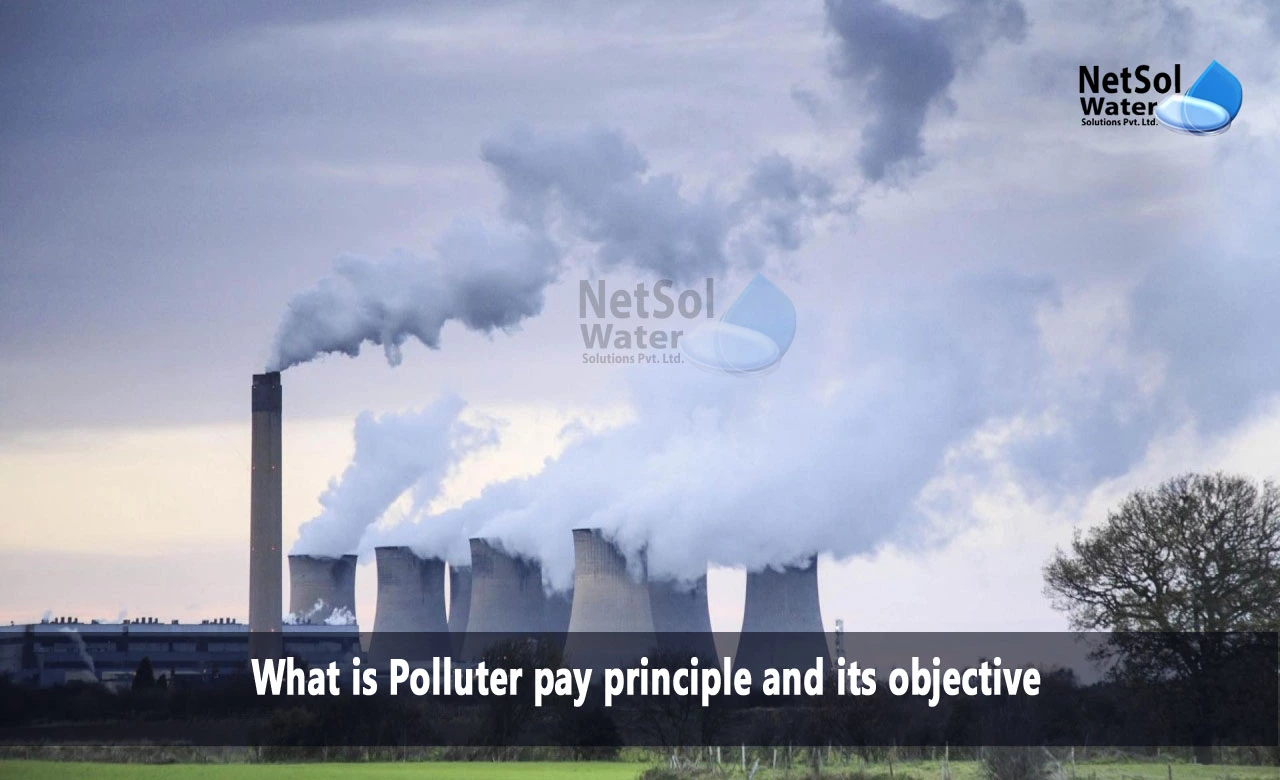What is Polluter pay principle and its objective?
In a world facing growing environmental challenges, the want for responsible environmental stewardship is more vital than ever. To encourage individuals and businesses to reduce their ecological footprint, governments and regulatory bodies have followed various guidelines and concepts. One such precept is the "Polluter Pay Principle." In this blog, we'll discover the Polluter Pay Principle, its reason, and the way it serves as an effective tool to deter people from polluting our planet.
Understanding the Polluter Pay Principle
The Polluter Pay Principle, additionally known as the "consumer pays" or "prolonged producer responsibility," is an essential concept in environmental economics and coverage. It places the economic burden of ecological harm and pollutants on the ones responsible for it – the polluters themselves.
In its middle, the precept indicates that individuals who generate pollution, create environmental damage, or burn up natural assets should endure the fees associated with their moves. This principle aims to internalise the externalities of environmental degradation, making sure that the genuine expenses of pollutants are pondered in the financial selections of individuals and companies.
The Objectives of the Polluter Pay Principle
The Polluter Pay Principle serves numerous key targets:
1. Accountability: By protecting polluters financially accountable for their moves, the principle encourages people and agencies to take preventative measures to reduce their environmental effects.
2. Environmental Protection: The precept is a deterrent, discouraging activities that can cause pollutants and environmental harm. It promotes the accountable use of sources and adoptingaccessible and sustainable practices.
3. Resource Allocation: By imposing economic liabilities on polluters, the principal allocates the fees of environmental cleanup and remediation greater equitably, decreasing the weight on taxpayers and society as an entire.
4.Incentivizing Innovation: Polluter Pays encourages the development of modern technology and practices that reduce pollutants and environmental impact. Businesses are prompted to spend money on cleaner, greater sustainable options to keep away from the economic consequences of contaminants.
5. Economic Efficiency: By internalising the environmental prices, this precept helps create an extra efficient marketplace. It fosters a level playing discipline for businesses, as people who generate much less pollutants can offer services and products at a decreasedaverage cost.
Implementation and Examples
The polluter-pay principle is implemented in various methods across unique sectors and jurisdictions. Some common examples include:
1. Carbon Taxes: Many countries have delivered carbon taxes, requiring businesses and people to pay for their greenhouse gasoline emissions. This economic burden encourages the discount of carbon emissions and drives investments in renewable energy and power-efficient technology.
2. Product Stewardship: Extended Producer Responsibility (EPR) programs hold producers answerable for the cease-of-existence disposal of their merchandise. This encourages them to lay products with recycling and environmental impact in thoughts.
3. Fines and Penalties: Legal frameworks often impose fines and consequences on individuals and companies responsible for pollution or environmental violations. These monetary results incentivise compliance with environmental rules.
4. Liability for Cleanup: In cases of environmental injuries or contamination, the Polluter Pay Principle mandates that responsible parties fund cleanup efforts, ensuring that those who cause environmental damage undergo the monetary burden.
Advantages and Criticisms
The Polluter Pay Principle has garnered huge help for its function in promoting environmental responsibility. Some of its blessings encompass:
Economic Efficiency: By internalising charges, it encourages companies to innovate and reduce their environmental effect, in the end reaping the rewardsfrom the financial system.
Environmental Protection: It is a powerful deterrent, reducing pollutants and incentivizing sustainable practices.
Fair Allocation of Costs: It ensures that those chargeable for pollutants undergo the financial burden rather than society.
Critics argue that the principle may be challenging to implement, as figuring out the actual fee of environmental harm is complicated. Additionally, there are issues withpotentially terrible economic results, inclusive of riding corporations to relocate to areas with lax ecological rules.
Conclusion
The Polluter Pay Principle is an essential idea in environmental policy designed to discourage people from polluting. By preserving individuals and agencies financially chargeable for their ecological effect, this principle encourages responsible conduct and incentivisesadopting sustainable practices. As our world grapples with urgent environmental demanding situations, the Polluter Pay Principle keeps playing a crucial position in shielding our planet and promoting a more environmentally accountable society.
Netsol Water is Greater Noida-based leading water & wastewater treatment plant manufacturer. We are industry's most demanding company based on client review and work quality. We are known as best commercial RO plant manufacturers, industrial RO plant manufacturer, sewage treatment plant manufacturer, Water Softener Plant Manufacturers and effluent treatment plant manufacturers. Apart from this 24x7 customer support is our USP. Call on +91-9650608473, or write us at enquiry@netsolwater.com for any support, inquiry or product-purchase related query.



